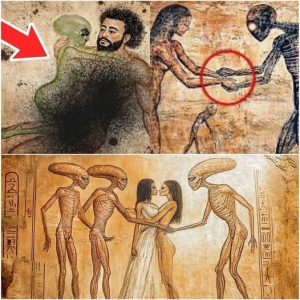Waiting at the shelter counter to complete a volunteer shift form, I noticed her stroll in—little flowered coat, huge black bag in hand, as though it weighted more than she did. She had a calm presence, like someone who didn’t have to say much to be seen.
The luggage landed softly on the counter. I looked inside—dozens of hand-knitted hats in every pastel hue imaginable, each with a tiny pom-pom on top. Pink, coral, seafoam, peach—they looked like scoops of sherbet.
She remarked, “One for every month, plus a few extras.”
The receptionist grinned, obviously waiting for her. You are exactly on time, Miss Ida.
Miss. Ida.
Evidently, she has been doing this for years. Knitting all year round, giving caps just before winter struck. No press, no bother, simply warmth—actual and emotional.
I remained behind, calmly observing. Though I’ve witnessed all sorts of contributions come through here, something about this felt… unique.
I walked over to look again when she departed.
Atop the stack sat a gentle gray cap with a sky-blue border and one sewn word within the fold: “Hope.”
For some reason, I grabbed for it as though it were beckoning.
Then I saw something nearly concealed between the stitches.
No larger than a fortune cookie slip, a little letter.
It read: You are not by yourself.
Then my hands began to tremble.
Two days ago, I nearly had.
My name is Samira, and lately life hasn’t been particularly nice to me. After a protracted sickness, my mother died this spring, leaving medical debts that seemed to completely destroy me. Though some nights I sat on the side of my bed and let myself cry since it all felt so terrible, I worked two jobs merely to keep our small apartment above water. Grief, duty, and loneliness weighed more than any physical load ever could.
Standing by the shelter desk that morning, I recalled how near I had been to surrendering. Sitting in my car beside the bridge, looking down at the river, I wondered whether letting go totally would make things lighter. Exhaustion, not courage or power, kept me from going. Fatigue that is pure, bone-deep. That day I just lacked the energy to do anything extreme.
But today, wearing this cap, reading those words… it seemed as though someone knew. Like someone knew something I couldn’t even say aloud.
Without a second thought, I pushed the hat inside my backpack, its softness under my fingers suggesting it held some magical curse only for me.
Over the next two weeks, I wore the hat everywhere—on my commute, during late-night shopping errands, even while working at the shelter where I met Miss Ida first. It was something about it that made me feel grounded, as though an invisible line linked me to hope itself. Every time I touched the brim, I remembered her note: You are not alone.
One night, then, as I was going through canned items in the cupboard, I heard her voice before I saw her. Miss Ida was back, early dropping off another set of hats as the weather had turned colder faster than anticipated. I quickly noticed her flowered suit and halted in mid-task, unexpectedly anxious. Should she inquire about the gray hat? Would she know it? Or, even worse, what if she figured out I required it more than anyone else?
I went to her first. Softly gripping the hem of my sweater, I replied, “Hi, Miss Ida,” “I wanted to thank you for your gift. It matters greatly to everyone present.
From her bag sorting, she looked up and her face brightened with a nice grin. Hello there! You are one of the volunteers, right?
“Yes,” I said, fast nodding. Then… I really acquired one of your caps. The blue-trimmed gray one.
Her expression softened and she tilted her head slightly, looking at me as though attempting to identify me. “Ah, indeed.” That one. She hesitated before saying, “Special, isn’t it?”
“It is,” I said, my throat constricting. There was a message within…
Her eyes sparkled with knowledge. Sometimes we put ideas into our work thinking they may reach someone who most needs them. Did it assist?
Tears stung the edges of my eyes, and I fast blinked to keep them at bay. More than you realize.
She touched my hand softly. “Good. All I ever want is to tell others they are stronger than they believe.
With each passing week, I started to look forward to seeing Miss Ida once more. Every visit revealed fresh tales, fresh insights into her quiet knowledge. It seems she started crocheting caps decades after unexpectedly losing her husband. Once she admitted, “I didn’t know what else to do with my hands.” That is why I created something beneficial. And in the process, I learned how to mend somewhat as well.
Motivated by her generosity, I started doing more at the shelter—not only planning supplies but also teaching children in the afterschool program and providing weekend meals. For the first time in years, I felt purposeful. Perhaps, just perhaps, I might survive another difficult season.
On a cold December afternoon, I came to the shelter to find Miss Ida already there, surrounded by volunteers unpacking boxes of holiday decorations. She eagerly beckoned me over. Samira! Come see our plans for tonight!
I followed her to a corner of the room where a big cardboard box lay open, exposing bundles of yarn in vibrant hues. She said, “We’re teaching anyone who wants to learn how to knit their own hats.” “Would you want to come along?”
Initially, I was unsure. I? Knit But then I considered the comfort her works had given me—and many others—and I agreed. “Of course.” Why not then?
We laughed and fought together for hours, fingers awkwardly entangled with needles and threads. I had made a lopsided red hat with a crooked pom-pom at the end of the night. Though not flawless, Miss Ida clapped triumphantly. “Look?” You have the touch.
Later, when I packed away my belongings, she gave me a tiny packet. “Here,” she stated. “Something to remember tonight by.”
Inside came still another little letter in her tidy handwriting: “Hope grows when shared.”
Months later, spring eventually came, melting the snow and bringing new flowers to the city streets. Life still wasn’t simple; I was still mourning and putting in long hours, but something had changed. I felt somehow lighter and more able to bear the burden. Whenever uncertainty entered, I took out that tiny letter and told myself, “Hope grows when shared.”
In the end, I made the decision to pay it forward. I trained myself to knit correctly using leftover yarn from the session, hence making my own caps to give. When winter came back, I stood next to Miss Ida at the shelter counter, contributing my little share to her full bag. We observed together as families chose hats, their faces beaming with thankfulness.
Among the jumble, I saw a young lady putting a gentle grey cap on her head. Tears filled her eyes as she read the little message hidden therein; they were not tears of grief. They were tears of hope restored, of connection, of relief.
In that split second, I realized the actual strength of Miss Ida’s present. It was about reminding folks they mattered, not only about keeping them warm. That no matter how bleak things appeared, someone out there cared enough to send a message: You are not alone.
Life Lesson: Occasionally, the tiniest gestures of compassion can have the greatest effect. From a hand-knit cap to a sincere letter, spending time to express compassion may transform lives—including your own. Therefore, feel free to express your hope. Give it forward. Love grows when given freely.
Should this tale resonate with you, kindly pass it on to others and comment below. Let’s share a bit more optimism today! Love





